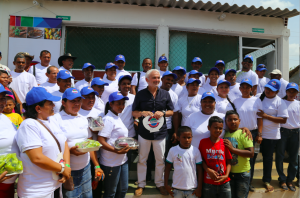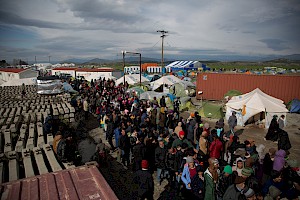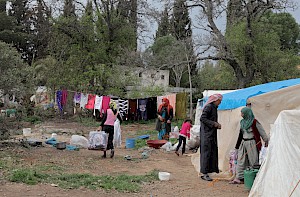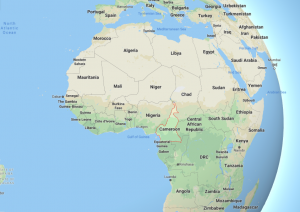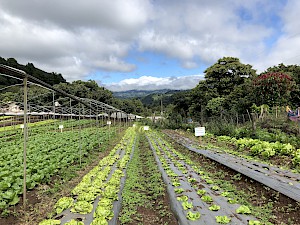The international aid system is in need of reform
June 08, 2022Originally published in The Toronto Star on June 1, 2022 as contributing columnist
While on a trip to Haiti last week I read a shocking headline, “Ukraine invasion could cause a global food crisis, UN warns.”
Secretary general António Guterres warned that the invasion, combined with the effects of climate change along with the pandemic “threatens to tip tens of millions of people over the edge into food insecurity followed by malnutrition, mass hunger and famine.” US Secretary of State Antony Blinken added that the world faces the “greatest global food security crisis of our time.”
To make matters worse, several countries are beginning to panic and implementing food export bans to protect their domestic populations. The list includes India, which banned the export of wheat. (It’s one of the world’s largest producers.) Indonesia banned exports of palm oil; a key ingredient used in many foods. Other countries, including Argentina, Turkey, Egypt, Kazakhstan, and Serbia banned exports on a variety of foods such as soybean and sunflower seeds, fruits and vegetables and meat products. Russia banned exports on wheat which when combined with the wheat supply no longer coming from war-ravaged Ukraine, accounts for 30 per cent of the world’s total wheat supply. China, with a population of 1.4 billion and the producer of almost half of global wheat production, is reported to be in a “hoarding mode,” purchasing large quantities of other food commodities.
 Many people assume that the food crisis was caused by a combination of the pandemic and the invasion of Ukraine. While these are important factors, they only aggravate an underlying problem.
Many people assume that the food crisis was caused by a combination of the pandemic and the invasion of Ukraine. While these are important factors, they only aggravate an underlying problem.
If this lurking food crisis doesn’t concern you, it should. Hunger provokes deadly conflict and social unrest. In the past, starvation has been not only a cause of war, but has also been used as a tool of war. Think back to 2018 when United Arab Emirates forces laid siege to Hodeida, a Red Sea port held by the Houthis and the country’s main gateway for food, fuel, and a lifeline for its central and northern regions. Or 2010, when food scarcity played a large role in the Arab Spring with all its deadly consequences. Today, food and energy inflation are wreaking havoc in most countries around the world, including in the US where it is certain to exacerbate the deepening political divide. When times get tough, most of us can do without a new iPhone but take away food or make it too expensive to afford and there are no limits to how desperately people will behave.
And who suffers most? The world’s poor, of course.
I was in Haiti for the launch of The Haiti Food Systems Alliance (HFSA), a new locally led alliance designed to build long-term food sovereignty and security from the bottom up. The alliance includes 14 established Haitian businesses and organizations dedicated to improving farmer incomes and food security. The partners are broken down into three categories: production (working with farmers), support services (data, research, training) and feeding (hospitals and schools). With the goal of ecosystem building, the alliance was spearheaded by Acceso (an organization I founded in 2007) and the W.K. Kellogg Foundation.
Acceso has been working in Haiti since 2014, improving the lives of 11,000 farmers by providing training, inputs, and credit and then purchasing their crops directly and linking them to high value domestic and international markets. W.K. Kellogg has provided funding to our school feeding program that, since 2018, has delivered more than two million snacks to 8,000 students using locally sourced ingredients from our farmer network. The beauty of this arrangement is that it serves a dual purpose, providing nutritious snacks for children and generating $500,000 (U.S.) in additional revenue to our farmer network.
 Haiti — the poorest country in the Western Hemisphere — has had a very tough go of it the past 12 years. First came the devastating earthquake in 2010 which killed 220,000 people, then came the 2021 earthquake that left 650,000 people in need of immediate assistance. Last year its president was assassinated and now Haitians are suffering from high inflation and increased gang activity.
Haiti — the poorest country in the Western Hemisphere — has had a very tough go of it the past 12 years. First came the devastating earthquake in 2010 which killed 220,000 people, then came the 2021 earthquake that left 650,000 people in need of immediate assistance. Last year its president was assassinated and now Haitians are suffering from high inflation and increased gang activity.
Acceso responded to the 2021 earthquake in an unconventional manner. Instead of sitting back and watching as international aid organizations began importing food into the country, we decided to tap into local food systems. In partnership with World Central Kitchen, within days of the earthquake our local Acceso team of more than 90 people delivered 115,000 tonnes of locally-sourced vegetables, fruits, grains, rice, beans, and peanut butter, providing 700,000 meals to families in need. As importantly, the benefit of these purchases accrued to 250 local farmers.
Why is this so important? As I noted in a previous article, the international aid system needs reform. As well-intentioned as it may be, food aid damages countries such as Haiti, with the influx of cheap food that hurts local farmers by pushing down prices. Lower prices and increased competition from imported crops can quickly destroy local value chains, resulting in lower farmer incomes and in some cases, farmers leaving the profession altogether and migrating to urban slums or abroad in search of new livelihoods. Given that there are an estimated 500 million smallholder farming households globally, who comprise a large proportion of the world’s poor living on less than $2 a day, this is a major problem.
In short, food aid should never be imported when local production is available. The global community, including multilateral organizations should work together to create self-sufficiency and strategically secure local food supplies that will strengthen local economies; lest we continue this endless self-defeating exercise.



